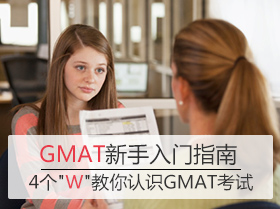GMAT逻辑削弱反对题型解题思路实例分析
- 2019年06月13日18:25 来源:小站整理
- 参与(0) 阅读(5312)
GMAT逻辑题本身就对大家的思维分析能力有一定挑战,而其中削弱反对题目选项中的干扰性关键词更是为正确解答增加了难度。下面就由小编来为大家实例解析相关考点,指点考生应对逻辑反对削弱题中的关键词干扰选项。
GMAT逻辑削弱反对题解题思路讲解
GMAT逻辑中的反对题型的正确答案是放在论证推理和结论之间,使段落推理成立或结论正确的可能性降低的选项,即对段落推理的作用与支持题型中的刚好相反。在解答反对题型时很常见的一个错误是选择带有论证和结论中的关键词而答案本身却对结论无任何影响的选项。反对的选项比支持要灵活的多,只要是能削弱对所得出结论的支持即可。因此,正确答案可能并无论证和结论中的关键词,而那些带有关键词的选项就具有很大的迷惑性。我们通过以下这个例子来看看这种常见错误的表现形式和应对思路。
A group of children of various ages was read stories in which people caused harm, some of those people doing so intentionally and some accidentally. When asked about appropriate punishments for those who had caused harm, the younger children, unlike the older ones, assigned punishments that did not vary according to whether the harm was done intentionally or accidentally. Younger children, then, do not regard people’s intentions as relevant to punishment. Which of the following, if true, would most seriously weaken the conclusion above?
(A) In interpreting these stories, the listeners had to draw on a relatively mature sense of human psychology in order to tell whether harm was produced intentionally or accidentally.
(B) In these stories, the severity of the harm produced was clearly stated.
(C) Younger children are as likely to produce harm unintentionally as are older children.
(D) The younger children assigned punishments that varied according to the severity of the harm done by the agents in the stories.
本GMAT逻辑题的正确答案为A,但在GMAT考试进行选择时我们会发现A中所涉及到的关键词最少,所以这个答案也是最容易忽略掉的。但是通过阅读我们不难发现,A答案传达的意思是年纪小一些的孩子可能不能区分故事中的坏事是否是有意造成的,因此即使年纪小一些的孩子确实认为人们的意愿是相关因素,他们在这里也可能不能够应用这项标准,通过这样的理解,我们可以知道A削弱了对于该结论的支持。
选项B和E是对该结论的支持,起码不会反对该结论,所以容易被排除。选项C和D最容易干扰解题思路,因为他们都带有关键词,但是由于其论述对结论没有什么影响,相对于A而言也不是理想的答案。
以上就是GMAT逻辑中削弱反对题型的解题思路实例讲解,做不好这类题目容易出错的同学可以来参考一下。





























